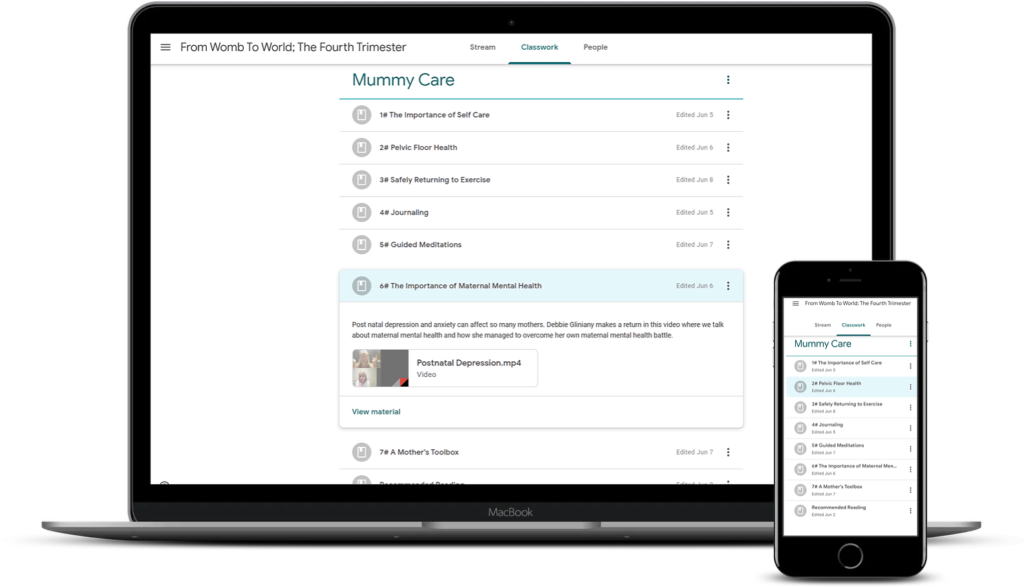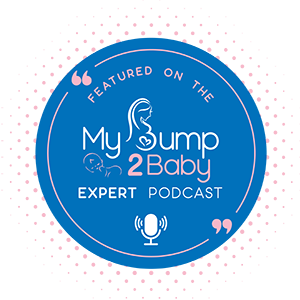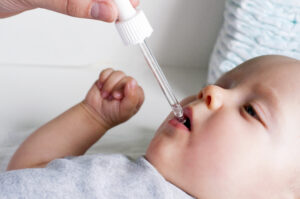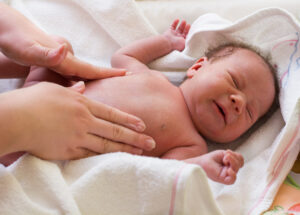If you have a baby that has baby reflux, whether it is in its simplest form of him being frequently sick or the silent kind, you will notice your baby squirming, wriggling and generally being uncomfortable. A reflux baby tends to be grumpy too. It’s not really a surprise when you understand what they are going through.
What is baby reflux?
Physiological reflux or simple reflux is medically defined as “the non-forceful regurgitation of milk into the oesophagus whereby an infant may regurgitate their feed a number of times a day.” This is often referred to as ‘chucky babies’ or ‘happy spitters’.
This type of reflux is very common with an estimated 40%-50% of babies under 3 months regurgitate some of their feed at least once a day and it tends to peak at about 4 months old. NICE advises that it is a normal physiological process and especially prevalent in babies as they spend a lot of time in prone position. It usually improves by the sixth month and dramatically after 12 months (NICE 2015) [1].
The symptoms of infant reflux include;
- Frequent Vomiting
- Arching Back
- Fussiness
- Crying
- Frequent Hiccups
- Cough whilst feeding
But what is the reality of baby reflux?
The above information is useful to help you identify if your baby has reflux but what is the reality of having a baby with reflux? In its commonest form of being a ‘happy spitter’, it doesn’t cause that much concern for health practitioners as the baby is still putting on weight. However, it is a concern for parents because reflux babies often cry and exhibit colic symptoms of being fussy and upset. It isn’t just ‘a laundry issue’ and there is usually a reason for this to be happening.
The usual suspect for simple reflux is overfeeding. A baby has the smallest of tummies and when baby’s gut can’t take anymore, it returns back up the oesophagus, usually with force. To remedy this, try smaller, more frequent feeds.
Also aerophagia (excessive air swallowing) is also a huge contributory factor to reflux in babies as the air in the stomach pushes the stomach contents up the oesophagus. Limiting your baby’s air intake will help your baby keep the milk in their tummies.
Silent reflux in babies
What happens when your baby has reflux but isn’t actually sick? Again, this is common and known as silent reflux. This is when the stomach contents wash back up the oesophagus and back down again.
Silent reflux in babies often presents as the usual colicky symptoms such as fussiness, crying, and arching of the back. Babies with silent reflux also often have frequent hiccups or a cough. You may be able to hear them swallowing or even making choking sounds.
Once you know that your baby is struggling with silent reflux, then you can begin to understand why your baby is so distressed. Although, it’s an uphill battle to get that diagnosis in the first place.
Gastro oesophagus reflux disease (GORD)
If your baby is losing weight and refusing to pain, then this is likely to GORD or also known as acid reflux in babies. This is when the acid washes back up the oesophagus and irritation, inflammation and pain is caused.
As well as the symptoms mentioned above there are additional symptoms including
- Weight loss
- Blood in stools
- Refusal to feed
- Respiratory issues
- Recurrent ear infections
Unlike colic and simple reflux, GORD is a medical concern because there maybe ‘failure to thrive’ due to the baby not gaining weight and baby vomiting frequently and forcefully. Also due to the pain caused by the acid, the baby may refuse feeds as they associate feeding with the pain.
Health practitioners will likely prescribe medications to control the acid in these babies, although these medications do come with their own side effects. You may want to check out the article on acid reflux medications.
The sleepless baby
Many babies with reflux struggle to sleep well, especially during the night. I remember those sleepless nights with a grunting, squirming baby laid next to me. I felt neither of us got any sleep. Reflux babies don’t like being laid flat. This is because the connection between the stomach and oesophagus is located towards the back so when baby is laid flat on their back (as recommended to reduce SIDS) it is more uncomfortable for them.
There is also something called ‘the acid dump’ which occurs in the early hours of the morning. The acid production pumps switch off at around 7pm and then begin to produce acid again at around 2/3am to deal with any unfriendly bacteria in the gut. This can cause babies to feel uncomfortable and cause them to wake.
The root cause of baby reflux
Perhaps it is surprising to know that many babies who receive medications to help their reflux, continue to suffer with symptoms. It is likely because the root cause of the issue isn’t being addressed. The causes of reflux include;
- Swallowing air
- Tongue-Tie
- Cow’s Milk Protein Allergy
- Overfeeding
Understanding what causes your baby’s distress is the best way to understand how to treat your baby’s reflux. My signature Colic SOS service combines my expertise in colic, reflux and infant allergies and your expertise in your baby, to understand the cause of your baby’s colic or reflux. It is then that we can find the most appropriate remedy for your baby. If you would you like more information about working with me to return calm back to your family then please check out my care services or book your free 15 minute call.
[1] https://www.nice.org.uk/guidance/ng1/resources/gastrooesophageal-reflux-disease-in-children-and-young-people-diagnosis-and-management-pdf-51035086789





